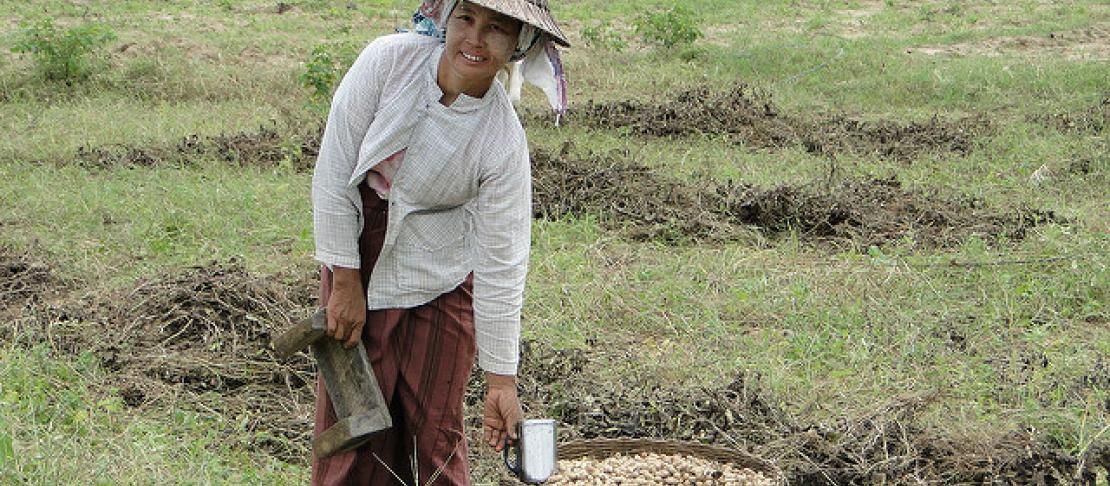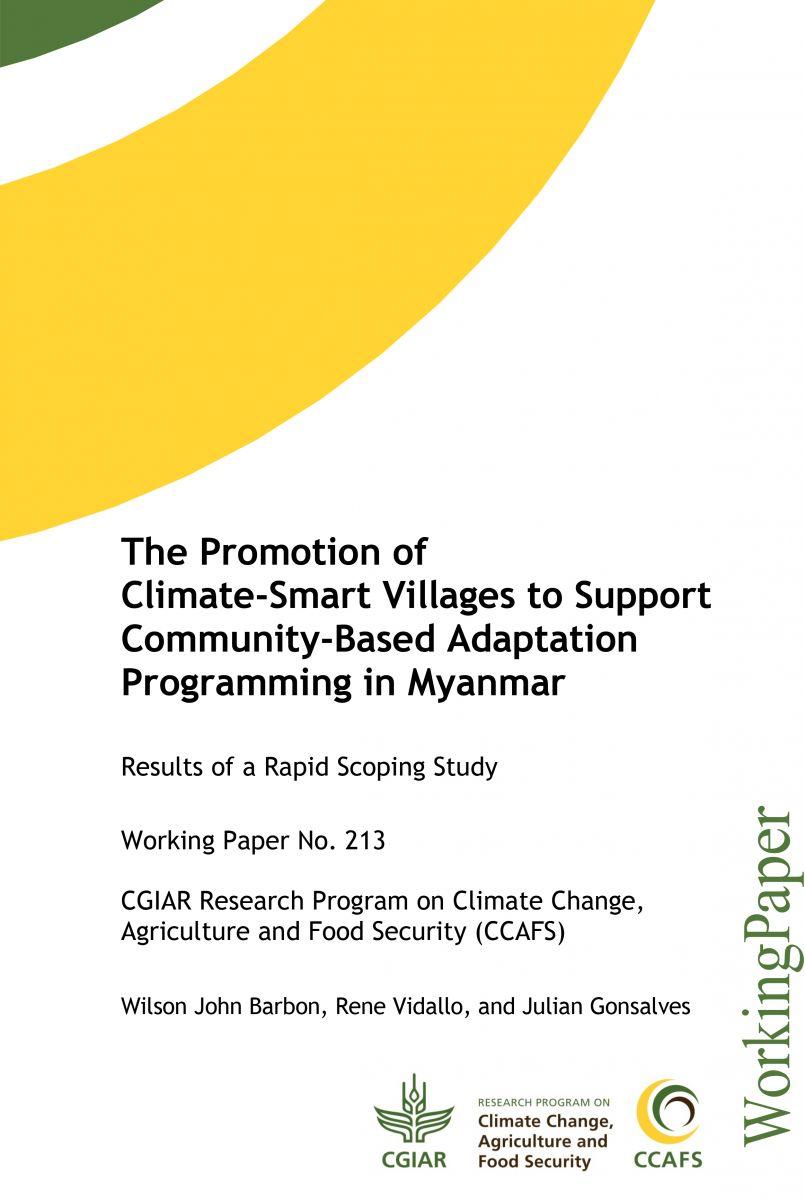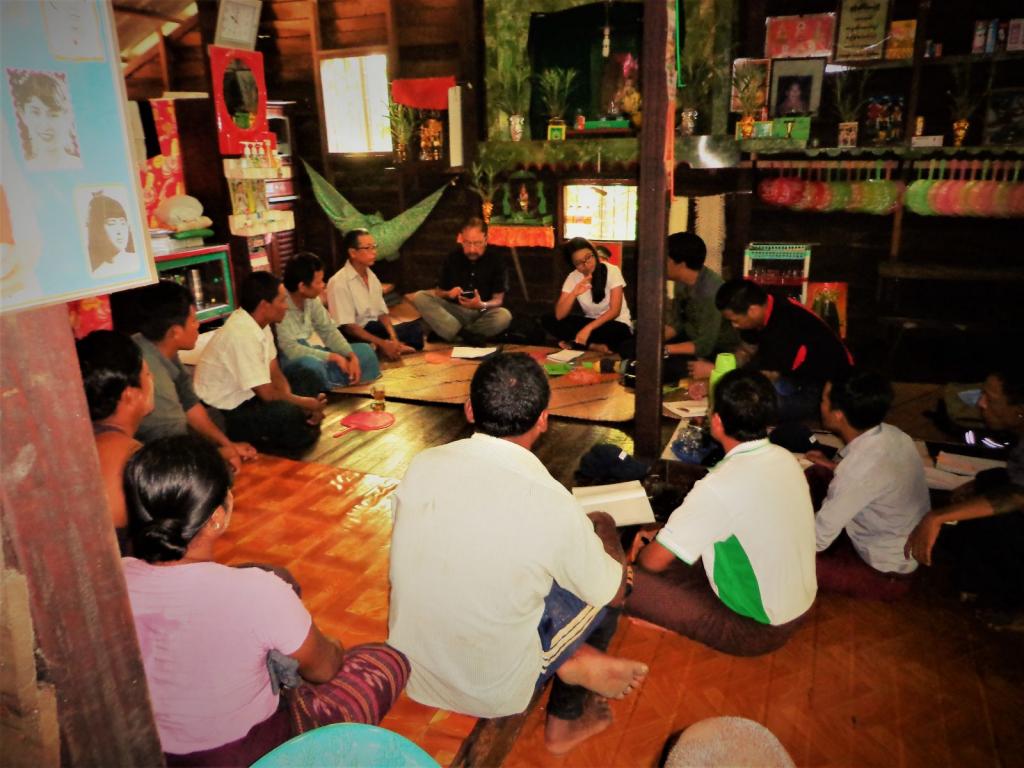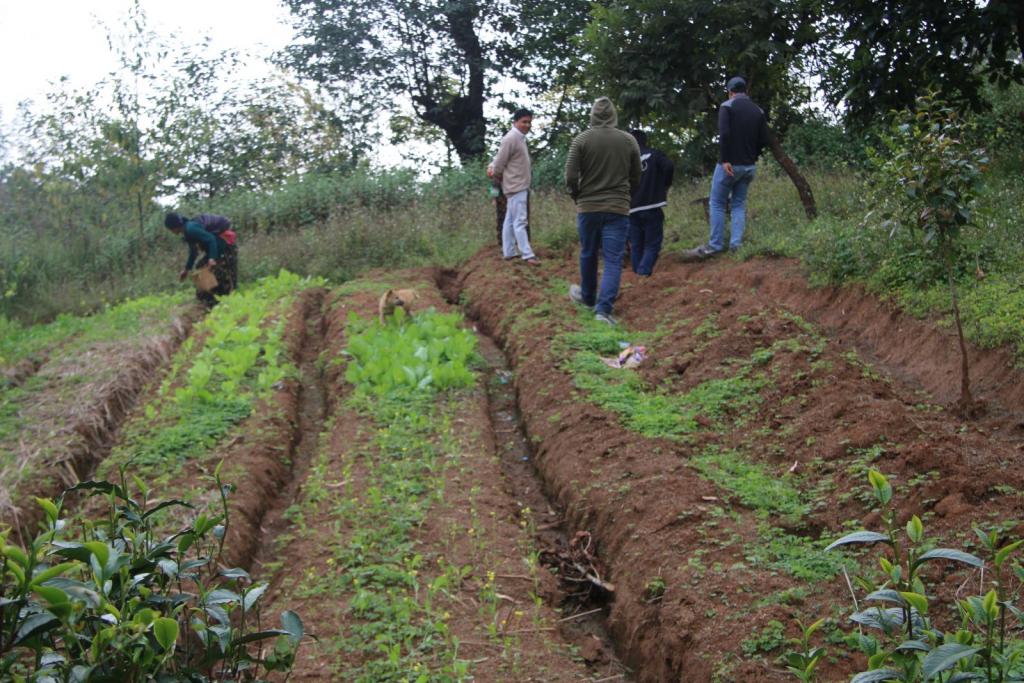Unlocking Myanmar’s potential for establishing Climate-Smart Villages

A scoping study reveals that implementing Climate-Smart Villages in Myanmar could improve climate resiliency and help put an end to malnutrition, land degradation, and food insecurity in the country.
Myanmar’s growing population puts greater toll on its limited resources to put food on their plates. When combined with threats posed by climate change on agriculture, achieving Myanmar’s 2030 goal of achieving food security, nutrition, and sustainable and globally-competitive agriculture sector seems far-fetched.
In recent years, climate change led to increased drought incidence, salinization of coastal farms and worsened flooding in Myanmar. This strikes a heavy blow on the country’s agriculture sector which comprises the lion’s share of its economy, constituting 30% of its GDP and providing jobs to 60% of its population.The effects of climate change are also detrimental to food security, livelihood, and nutrition to which agriculture is inextricably linked. Finding a solution to this multi-faceted problem entails the adoption of climate-smart agricultural (CSA) practices
Owing to the variation in topography, cropping systems, soil type, ethnicity, and poverty levels across zones and states in Myanmar, agro-ecology and location-specific community-based solutions are needed. With the support of the CGIAR Research Program on Climate Change, Agriculture and Food Security (CCAFS) in Southeast Asia, the Myanmar Ministry of Agriculture and Irrigation adopted the Myanmar Climate-Smart Agriculture Strategy (MCSAS) in 2015.
Rapid scoping study
To help in the implementation of support programs under MCSAS, the International Institute of Rural Reconstruction (IIRR) in Myanmar undertook a scoping study between 10 and 20 December 2016, covering four separate cultural and ecological locations.
 The Promotion of Climate-Smart Villages to Support Community-Based Adaptation Programming in Myanmar |
Participatory Rural Appraisal approaches and tools such as key informant interview and focus-group discussion were used to assess the technological, social, and institutional landscapes in the four agro-ecological zones. This ensures that the adaptation strategy to be generated is economically feasible, and socially and culturally appropriate to the different agro-ecological zones in Myanmar for establishing CSVs.
The results of this study were used to develop a strategy for promoting CSA practices and establishing CSVs. Findings from this study can also be used in developing technical, policy and investment conditions to achieve the goal of sustainable agriculture through CSA interventions.
These villages already have some impressive climate-smart and nutrition-friendly agricultural practices such as intercropping and dry-season cropping of legumes (either as a main crop or in post-rice cropping systems) which only needs to be enhanced and incorporated in CSVs to be established. Based on the results of the scoping study, four potential areas representing different agro-ecological zones were identified for establishing CSVs. The proposed areas for CSVs in Myanmar are HtiPhu Village (dryland, sandy, semi-arid land), MakyaukAia Village (highland), KyautNgat Village (upland) and Ma Sein Village (lowland Delta).
Climate-smart agriculture practices such as diversification are already being used in most of the areas visited by the scoping team. Photo: IIRR
Opportunities for collaboration
According to IIRR, local governments, local research stations, and the existing network of local non-government organizations in potential CSV sites would be tapped in the CSV implementation process. This could ensure continuity of the CSA interventions, regular follow-ups by local partners, and greater prospects for mainstreaming and scaling out CSVs by national agencies.
During the scoping mission, the Yezin Agricultural University also offered to assist CCAFS in conducting research and in implementing CSVs in Myanmar. With the help of these partners, a framework for location-specific and sustainable CSA strategy can be drafted per area.
Key strategies for adaptation
The results of the scoping study reiterate the need for multiple-benefit CSA adaptation strategy which will not only improve climate resiliency, but also address problems on poverty, land degradation, malnutrition faced by smallholder tenant farmers and landless labourers. Community-based adaptation programs offer an opportunity to address the neglected marginal sized farm landholdings, and even tenants and landless workers.
The CSVs to be established would retain and intensify good practices such as homestead gardening and dryland horticulture already pre-existing in most farms in rain-fed uplands, drylands, and mountains. The current impressive emphasis on legumes provides opportunities to leverage the nutrition contribution of agriculture in the country. Intensification of livestock production to meet the needs of the landless and tenants are also considerable including for purposes of conserving agro biodiversity of native climate hardy animal species.
Based on the results of the scoping study, IIRR also recommended doing the following measures to ensure success of the establishment of CSVs in Myanmar: securing active involvement of potential partners and communities in the CSV process; conducting participatory varietal assessment and the mapping of existing and potential CSA options; and implementing the three-year CSV programs in three phases.
The first year of the implementation will be spent in the establishment of the CSVs, undertaking participatory assessments, undertaking informal participatory action research (as a way of engaging farmers in the process of CSV establishment) and formalizing partnerships. Crafting a more structured CSA plan and promoting CSVs to other communities will be done during the second year. Year three will focus on advocacy efforts, and conducting research and writing position papers to convince policymakers to uptake CSV practices.
Download the working paper: Barbon WJ, Vidallo R, Gonsalves J. 2017. The Promotion of Climate-Smart Villages to Support Community-Based Adaptation Programming in Myanmar. CCAFS Working Paper no. 213. Wageningen, The Netherlands: CGIAR Research Program on Climate Change, Agriculture and Food Security (CCAFS).
Read more:
- Myanmar’s climate-smart agriculture strategy: a roadmap to resilience and sustainability
- Myanmar pushes for adaptation in agriculture during climate negotiations
- Common problems, common solutions: Southeast Asian countries highlight shared approach to climate action in agriculture
About IIRR's work on climate-smart agriculture:
The work of the International Institute of Rural Reconstruction (IIRR) in Myanmar is part of its commitment to demonstrate and promote participatory and people-driven approaches to rural development. IIRR is a community development and hands-on training and research organization with 55 years of experience. IIRR is a Strategic partner of CGIAR’s Climate Change and Food Security program and is helping to develop approaches to scaling up climate smart agriculture at local government levels in the Philippines particularly in demonstrating a model of climate smart villages in the municipality of Guinyangan, Quezon province. This work has been picked up the Department of Agriculture of the Philippine national government by inviting IIRR to support the implementation of similar activities in the government’s Adaptation and Mitigation in Agriculture (AMIA) program. These experiences and track record, IIRR hopes to replicate a CSV in Myanmar in the next three years with CCAFS.
Camille Anne Mendizabal is the junior communications specialist for the World Agroforestry Centre Philippines. She is also a communication consultant with the CCAFS SEA program.





